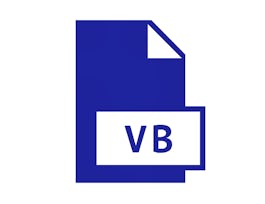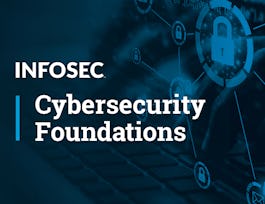This course introduces the students to the creation and deployment of modern, standards-compliant web pages written in HTML, CSS, and JavaScript in the context of the client-server architecture of the web. The course also covers the fundamentals of programming in a modern programming language, basic data modeling, database design, implementation, and administration of single-user and shared multi-user database applications using a contemporary relational database management system. The course aims to provide the students with an end-to-end understanding of web application development, from front-end to back-end and deployment.



Programming and Application Foundations

Instructor: Raj Krishnan
Sponsored by IEM UEM Group
1,806 already enrolled
(49 reviews)
Recommended experience
What you'll learn
How to develop an end-to-end web application using database and deploy to cloud managing source control
Skills you'll gain
- Hypertext Markup Language (HTML)
- Database Development
- Application Development
- Cloud Applications
- Databases
- Web Development
- Web Language
- Database Application
- Full-Stack Web Development
- Web Development Tools
- Server Side
- Back-End Web Development
- Front-End Web Development
- Web Applications
- Web Design and Development
- Web Frameworks
- JavaScript Frameworks
- Javascript
- HTML and CSS
- Web Design
Details to know

Add to your LinkedIn profile
12 quizzes, 22 assignments
See how employees at top companies are mastering in-demand skills


Earn a career certificate
Add this credential to your LinkedIn profile, resume, or CV
Share it on social media and in your performance review

There are 9 modules in this course
Welcome to Programming and Application Foundations! In Module 1, we will discuss the fundamentals of web application development and focus on front-end development of standard compliant web pages using HTML and CSS. The first lesson discusses the basic ingredient of a web application. We learn about HTML in the second lesson and learn about styling the html pages with CSS.
What's included
8 videos6 readings5 assignments1 discussion prompt
In this module we will introduce JavaScript which is a powerful programming language that is widely used for web development. It is a lightweight and interpreted language that can be used to create interactive and dynamic web pages. The module is broken down into three sections to introduce the basic concepts of JavaScript, how it is used to manipulate the document object model and using JavaScript to handle events which that makes a web page interactive.
What's included
4 videos5 readings4 assignments
This module is designed to introduce various tools and frameworks that are commonly used in web development. This includes discussion of Integrated Development Environments (IDEs), frameworks, libraries, and popular web frameworks like React and Angular.
What's included
4 videos6 readings4 assignments
A web application involves the client (Browser) and a server that serves pages to the client to provide an interactive experience. In this module we will discuss the client- server architecture, the communication protocol used between the client and the server to deliver dynamic content and the request / response cycle that initiates the conversation from the client (Request) and the response sent by the Server along with the metadata.
What's included
4 videos5 readings1 quiz3 assignments
Developing a web application requires writing programs on the server side. In this module we will discuss concepts like data types, variable, programming languages, control structures and flow like For, While etc. You will learn about declaring and manipulating data using programming languages.
What's included
4 videos5 readings2 quizzes2 assignments
To develop interactive applications, you need to store data, access it, modify it and use it. In this module, we will focus on the fundamentals of databases, tables, columns, relationships, constraints and data modeling. You will learn about Data Definition Language, Data Manipulation Language, Data Query Language and Data Control Language. We will also explore NoSQL as an alternative to traditional relation database management systems and the use cases for them.
What's included
4 videos5 readings3 quizzes1 assignment
To deliver interactive and dynamic web applications, we need to access the data, apply business logic and product content to construct the web pages. In this module we will discuss how to access data from database, convert the data into meaningful information for the web pages to consume. This process of server-side programming using frameworks like React, Angular, Vue etc. are discussed in this module.
What's included
4 videos5 readings3 quizzes1 assignment
Web application is a collection of processes starting from gathering user requirements, developing prototypes, designing the application, developing, testing, deploying, monitoring and maintaining them. In this module we will discuss tools and technologies that will help us in each phase of the process. Use of mockup tools, source control, frameworks, IDEs and CI / CD tools are discussed in this module.
What's included
4 videos5 readings3 quizzes1 assignment
This module contains the summative course assessment that has been designed to evaluate your understanding of the course material and assess your ability to apply the knowledge you have acquired throughout the course. You will have a hands-on exercise to design, build, and deploy a basic web application with data interactivity.
What's included
1 assignment
Instructor

Offered by
Why people choose Coursera for their career




Recommended if you're interested in Computer Science

Board Infinity

LearnQuest

LearnQuest

Infosec

Open new doors with Coursera Plus
Unlimited access to 10,000+ world-class courses, hands-on projects, and job-ready certificate programs - all included in your subscription
Advance your career with an online degree
Earn a degree from world-class universities - 100% online
Join over 3,400 global companies that choose Coursera for Business
Upskill your employees to excel in the digital economy


